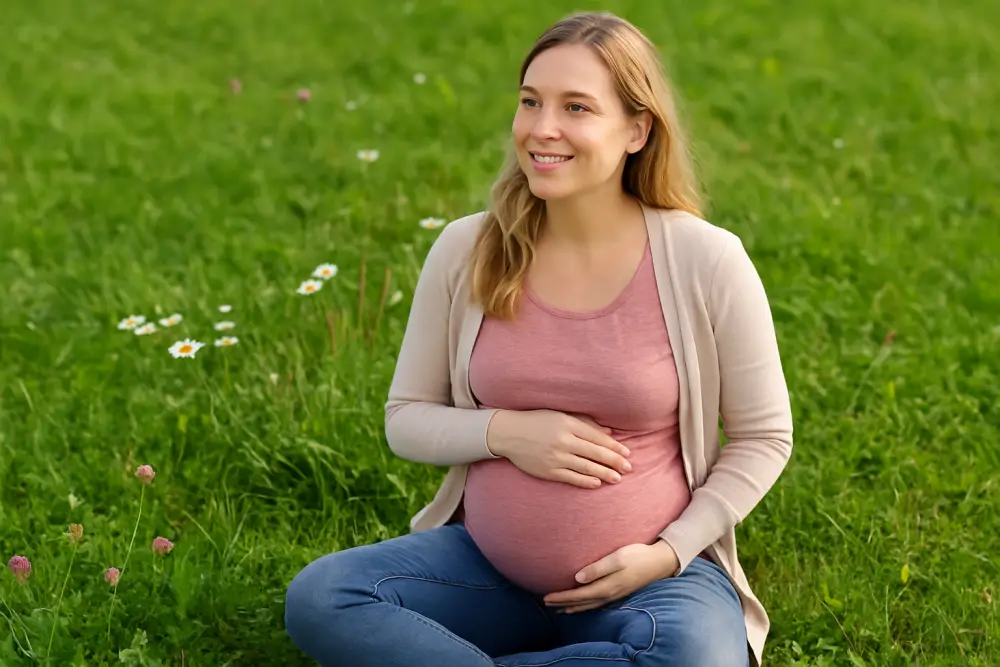Pregnancy is a joyful experience, but it can also bring new health challenges.
Nearly one in four expectant mothers experiences allergy symptoms while pregnant.
Finding safe and natural allergy relief during pregnancy is important,
not only for your comfort but also for your baby’s health.
Here’s a complete guide to safe, doctor-approved strategies and home remedies.
Why Allergies Feel Worse During Pregnancy
Allergies occur when your immune system reacts to harmless substances such as pollen, dust,
or pet dander. Pregnancy hormones can make symptoms more intense, and in some cases,
you may also develop rhinitis of pregnancy—a stuffy nose caused by hormonal changes
rather than allergens. Knowing the difference helps in choosing the right remedy.
1. Talk With Your Healthcare Provider First
Before taking any medication or supplement, consult your doctor. Some over-the-counter
allergy medicines are safe, while others should be avoided, especially during the
first trimester. Your healthcare provider can guide you on safe dosages and alternatives.
2. Avoid Common Triggers
The best natural remedy for allergies during pregnancy is prevention. Try these tips:
- Keep pets out of your bedroom and off the bed.
- Use dust mite-proof pillow and mattress covers.
- Keep windows closed and use air conditioning during pollen season.
- Avoid outdoor activities between 5 a.m. and 10 a.m. when pollen is highest.
- Wash bedding weekly in hot water.
- Use a vacuum with a HEPA filter to reduce dust.
- Maintain home humidity below 50% to prevent mold growth.
- Avoid exposure to tobacco smoke.
3. Natural Remedies for Mild Allergy Relief
If your symptoms are mild, consider these safe and natural approaches before reaching
for medication:
- Saline nasal spray: Keeps nasal passages moist and reduces congestion.
- Nasal irrigation (neti pot): Helps flush out allergens from your sinuses.
Always use sterile or previously boiled water. - Exercise: Gentle activity reduces nasal inflammation and boosts immunity.
- Nasal strips: Worn at night, they open nasal passages for easier breathing.
- Shower and change clothes: After spending time outdoors, this helps remove pollen.
4. Safe Allergy Medications During Pregnancy
When lifestyle changes are not enough, some medications may be considered safe under medical supervision.
Allergy medicines are categorized from Class A (safest) to Class D (potentially harmful).
The following are generally regarded as safe (Class B), but always confirm with your doctor:
- Loratadine (Claritin®)
- Cetirizine (Zyrtec®)
- Chlorpheniramine (ChlorTrimeton®)
- Diphenhydramine (Benadryl®) — may cause drowsiness
- Cromolyn sodium nasal spray — safe for prevention, but not immediate relief
Medications to avoid unless prescribed include pseudoephedrine (Sudafed),
phenylephrine, and fexofenadine (Allegra®). These may pose risks, especially in early pregnancy.
5. Immunotherapy During Pregnancy
If you were already receiving allergy shots before pregnancy, you can usually continue under
medical supervision. However, it is not recommended to start immunotherapy during pregnancy
due to the risk of severe allergic reactions.
Safe Relief for Seasonal Allergies
Seasonal allergies often peak during spring and fall. To manage symptoms naturally:
- Monitor daily pollen counts and limit outdoor activities when levels are high.
- Wear a protective mask when gardening or mowing the lawn.
- Rinse your nose with a saline spray or neti pot after outdoor exposure.
- Raise the head of your bed 30–45 degrees to improve breathing at night.
When to See a Doctor
While most allergy symptoms are manageable, consult your healthcare provider if you experience:
- Severe breathing difficulties
- Frequent asthma attacks
- Symptoms that do not improve with safe remedies
Final Thoughts
Allergies during pregnancy can be uncomfortable, but you don’t have to suffer in silence.
By focusing on natural allergy relief during pregnancy, practicing prevention,
and working with your doctor, you can breathe easier and enjoy a healthier pregnancy.
Always put your safety and your baby’s well-being first when considering any treatment.
Frequently Asked Questions About Natural Allergy Relief During Pregnancy
Can pregnancy make allergies worse?
Yes. Hormonal changes during pregnancy can increase nasal congestion, leading to more intense allergy symptoms.
This is sometimes referred to as rhinitis of pregnancy.
Is Claritin safe to take while pregnant?
Claritin (loratadine) is generally considered safe (Class B medication) during pregnancy.
However, always consult your healthcare provider before taking any medication.
What natural remedies can I try before taking medicine?
Saline nasal sprays, neti pots with sterile water, gentle exercise, and avoiding triggers like pollen or pet dander
are effective natural remedies for mild allergy symptoms.
Can I continue allergy shots while pregnant?
If you started immunotherapy before pregnancy and are tolerating it well, it’s usually safe to continue under medical supervision.
However, pregnancy is not the time to begin new allergy shots.
When should I see a doctor about my allergies during pregnancy?
If you have trouble breathing, frequent asthma attacks, or your symptoms don’t improve with natural remedies,
contact your doctor for personalized care.

